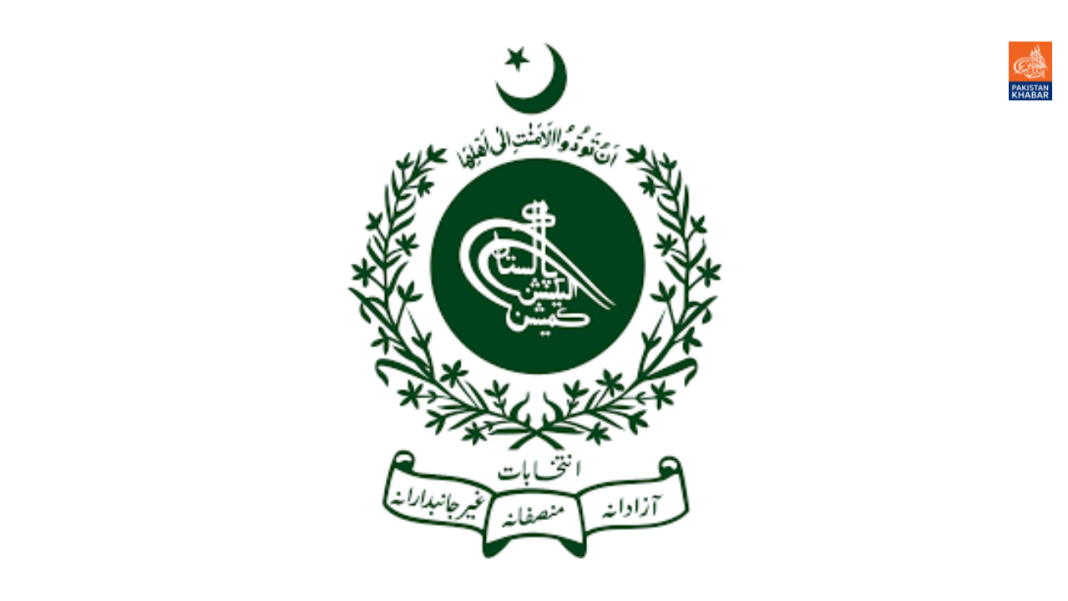Thursday, the Election Commission of Pakistan (ECP) declared 39 lawmakers—who ran as independent candidates in the February 8 elections and subsequently joined the Sunni Ittehad Council (SIC)—as members of Pakistan Tehreek-e-Insaf (PTI) in accordance with the Supreme Court’s July 12 ruling on the reserved seats case.
The ECP posted the notification on its website, designating 39 National Assembly lawmakers as members of the former ruling party, reflecting their declared PTI affiliation in their nomination papers for the February 8 national elections.
This decision was made in a significant session chaired by Chief Election Commissioner (CEC) Sikandar Sultan Raja, where it was decided to publish the notification confirming the affiliation of 39 lawmakers with the PTI, founded by Imran Khan. Notable figures among the notified PTI MNAs include Asad Qaiser, Sher Afzal Khan, Latif Khan Khosa, Zartarj Gul, Shandana Gulzar Khan, Zain Hussain Qureshi, Malik Aamir Dogar, Ali Afzal Sahi, and Ali Khan Jadoon.
These PTI MNAs, now officially recognized by the ECP, had indicated their party affiliation in their nomination papers before the 2024 general elections. Initially, PTI candidates, having lost their election symbol, contested the February 8 elections as independents. The party instructed these independents to join the Sunni Ittehad Council (SIC) to qualify for reserved seats.
After securing the most seats in the general elections earlier this year, PTI was initially denied reserved seats by the ECP. This decision was upheld by the Peshawar High Court (PHC), citing PTI’s failure to submit the required list of candidates for reserved seats within the specified timeframe.
The Supreme Court, in a ruling on July 12, declared that PTI, as a political party that won general seats in the national and provincial assemblies in the February 8 elections, is entitled to reserved seats. The Supreme Court’s full bench, led by Chief Justice of Pakistan (CJP) Qazi Faez Isa, overruled the Peshawar High Court’s March 25 judgment and deemed the ECP’s March 1 order unconstitutional and legally ineffective.
Following the Supreme Court’s directives, the ECP convened several sessions to discuss the ruling. In a session last week, the ECP noted that 39 candidates had declared their affiliation with PTI in their nomination papers. Conversely, 41 candidates, initially declared as independents, did not mention PTI in their nomination papers nor disclosed their party affiliation or submitted any party ticket.
“Therefore, the ROs allowed them to contest the election as independents. Later, these MNAs voluntarily joined the Sunni Ittehad Council (SIC) within three days as required by law after winning the election,” the ECP stated.
PTI’s appeal against the Election Commission and the PHC’s decisions was rejected by the Supreme Court. It is important to note that PTI was neither a petitioner in the case against the ECP in the Supreme Court nor the PHC.
Meanwhile, the ruling parties, Pakistan Muslim League-Nawaz (PML-N) and Pakistan Peoples Party (PPP), have filed a review petition in the Supreme Court against the reserved seats verdict, which unexpectedly favored the main opposition party. This ruling not only facilitated PTI’s return to parliament, which was excluded from the February 8 polls due to the ECP’s December 2023 ruling, but also increased pressure on the coalition alliance by altering the National Assembly’s composition.




